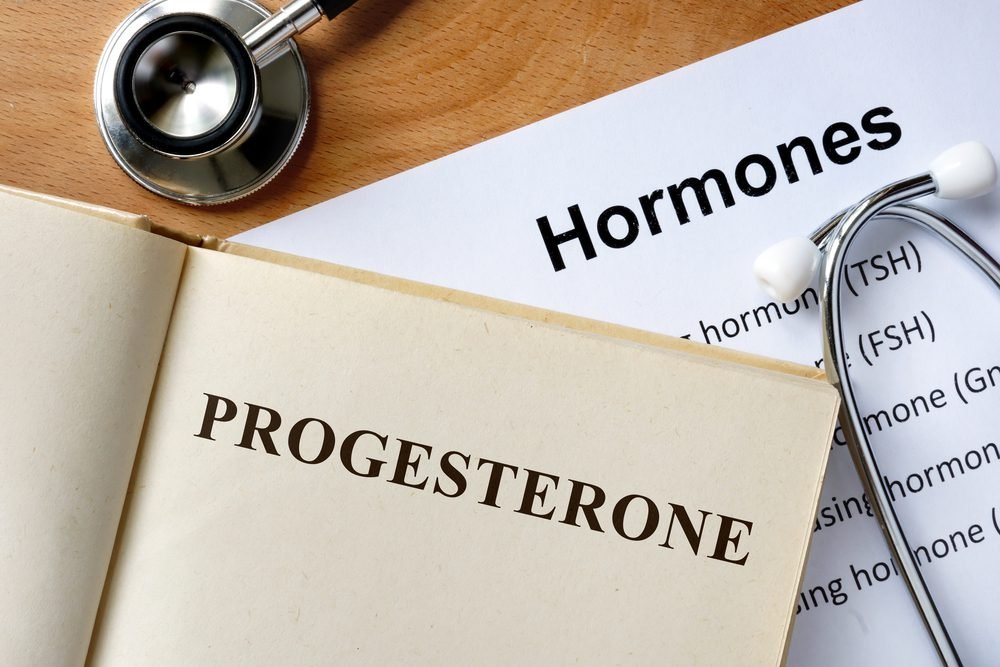HORMONAL BALANCE is crucial to maintaining a healthy body and mind. Among the various hormones that play a significant role in women’s health, HIGH PROGESTERONE and ESTROGEN are particularly important. While estrogen is often considered the ‘PRIMARY FEMALE HORMONE’, progesterone plays a vital role in counteracting the effects of estrogen.
An imbalance in these hormones can lead to a range of symptoms and health issues. Although many women experience low progesterone levels and ESTROGEN DOMINANCE, some may suffer from HIGH PROGESTERONE. In this article we will focus on the symptoms of HIGH PROGESTERONE levels in women, and learn how to identify them if you’re affected.
Common CAUSES of High Progesterone in Women
There are several factors that can contribute to elevated progesterone levels in women. It’s essential to identify the MAIN, UNDERLYING CAUSE of high progesterone to target treatment effectively.
Changes in the menstrual cycle (elongation of the luteal phase)
A reduction in estrogen levels
Excessive supplementation with progesterone or progesterone precursors
Pregnancy
ADRENAL GLAND-related issues (overproduction of adrenal hormones or improper adrenal enzyme signaling)
Identifying High Progesterone Symptoms
These MOST COMMON symptoms may occur with slightly elevated progesterone levels:
- WEIGHT fluctuations (usually mild weight gain of 5-10 pounds)
- DROWSINESS
- DEPRESSED feelings but not overt depression
- Slight DIZZINESS
- Waking up GROGGY or “on edge”
- BLOATING
- Sense of physical instability
- SPINNING sensation
- Discomfort or PAIN in the legs
- Water retention
- ANXIETY or feeling “tense”
- Changes in LIBIDO (usually decreased sex drive)
Less Common Symptoms
These symptoms are less common and usually occur with higher progesterone levels:
- HOT FLASHES (due to an overload of estrogen receptors)
- INSOMNIA
- Increased appetite
- Overt anxiety or PANIC attacks
- Depression
- Significant weight gain
Testing for High Progesterone Levels
To accurately assess progesterone levels, it’s important to follow these guidelines:
Test progesterone and estradiol simultaneously.
Consider the time of the month (if still menstruating) when testing.
Be aware that serum levels may not be the most accurate way to test progesterone levels.
Understand that progesterone levels change with age.
In some cases, more advanced testing, such as checking URINARY METABOLITES OF PREGNANEDIOL, may be necessary for a more accurate assessment of progesterone levels.
Treating High Progesterone Levels
The treatment for high progesterone levels depends on the underlying cause:
Reduce progesterone supplementation if taking too much.
Address ADRENAL FUNCTION issues by managing STRESS, adjusting DIET, and taking appropriate supplements.
Make lifestyle changes to normalize the menstrual cycle and luteal phase.
Evaluate THYROID and other hormones, such as leptin, insulin, and testosterone.
Addressing High Progesterone Levels from Birth Control Medications
SYNTHETIC HORMONES in birth control medications can impact normal hormone levels and progesterone production. If you suspect that your birth control is causing high progesterone symptoms, consult with your healthcare provider to discuss alternative contraceptive methods or adjustments to your medication.
Conclusion
Understanding the symptoms, causes, and treatment options for HIGH PROGESTERONE levels is essential for maintaining hormonal balance and overall well-being. If you suspect you have high progesterone, consult with a healthcare professional to determine the appropriate course of action.

Dr. Bob was born and raised in Florham Park, New Jersey.
He loved the philosophy of vitalism, which teaches about the incredible, innate intelligence of our bodies and its power to self-heal when given the opportunity.

